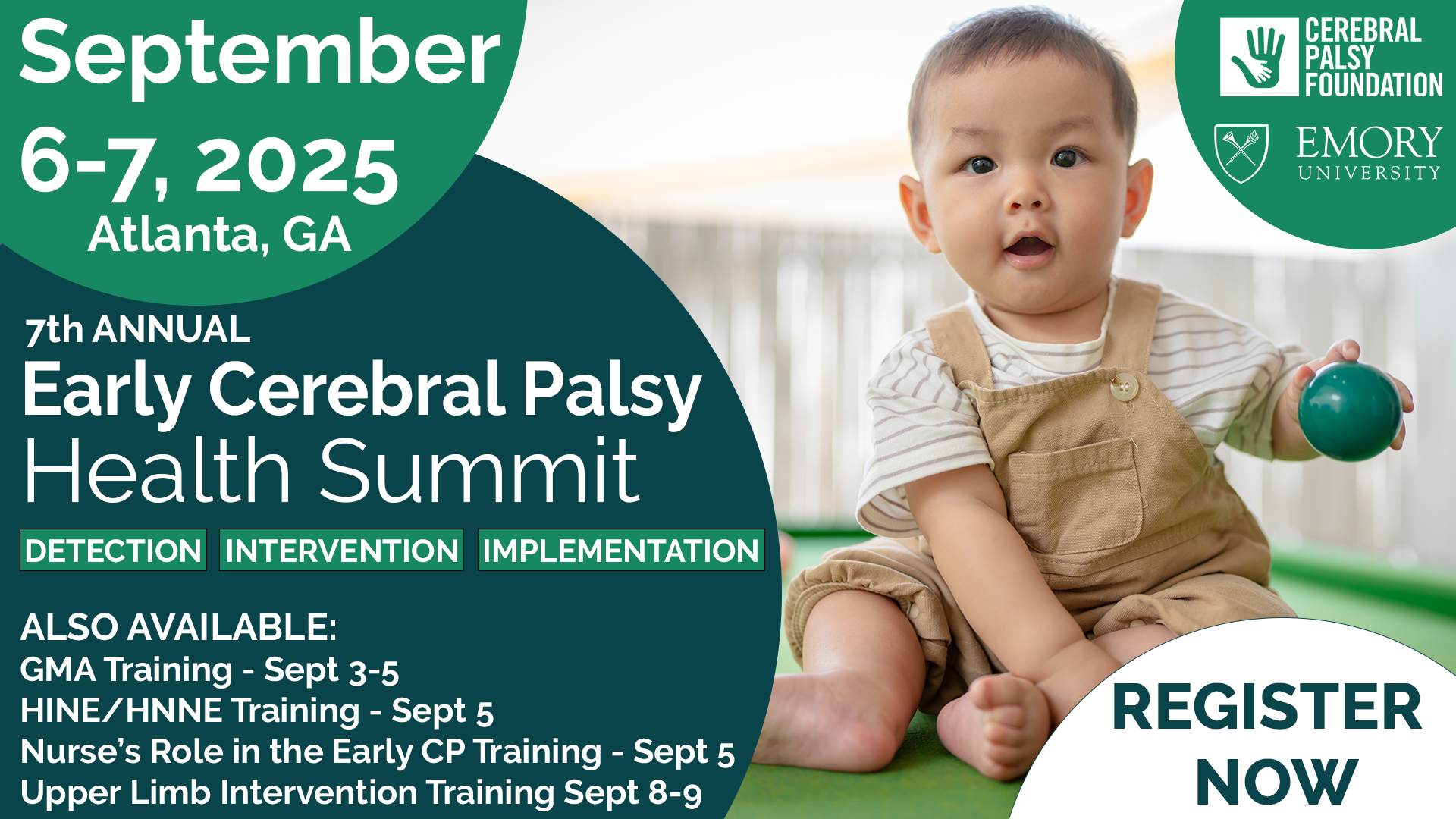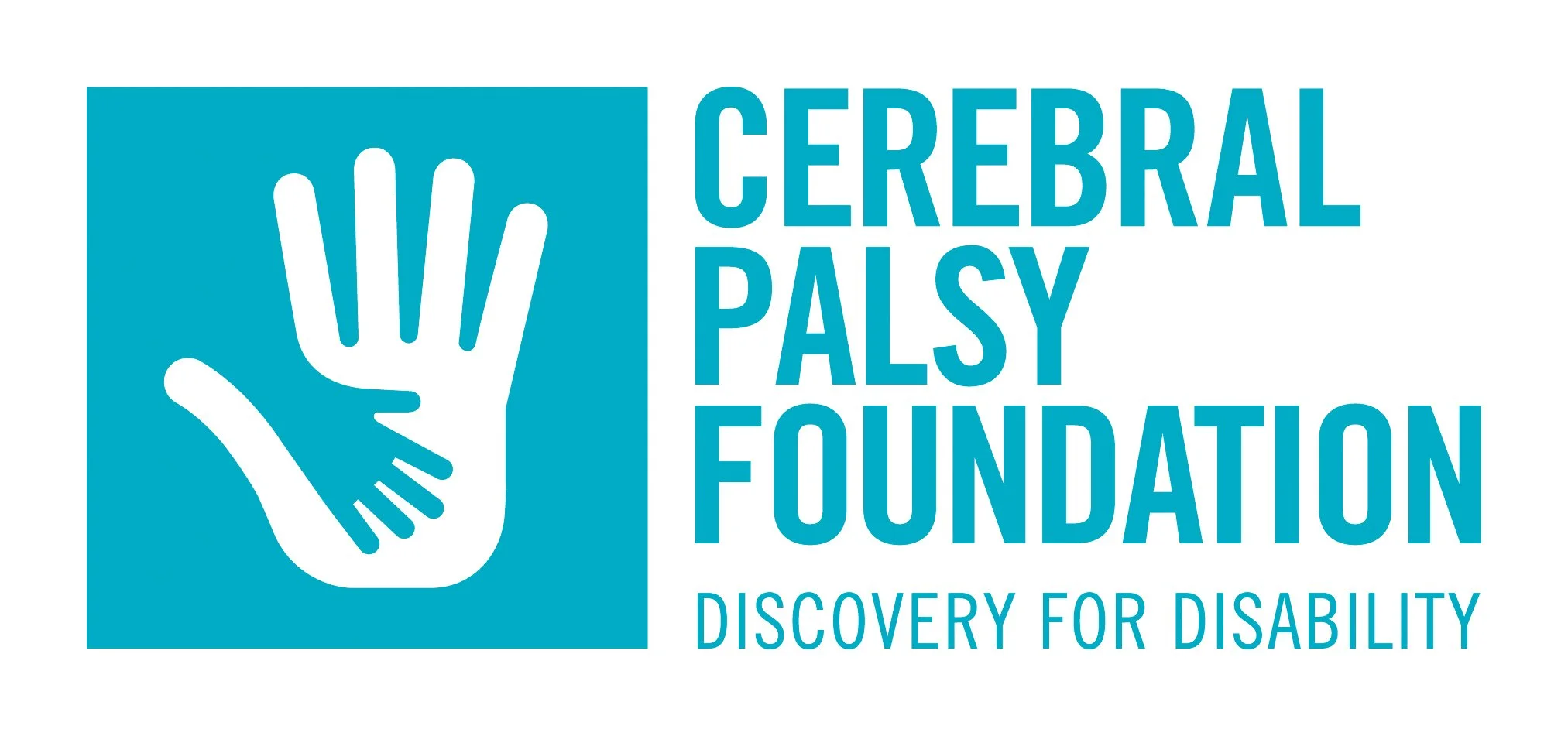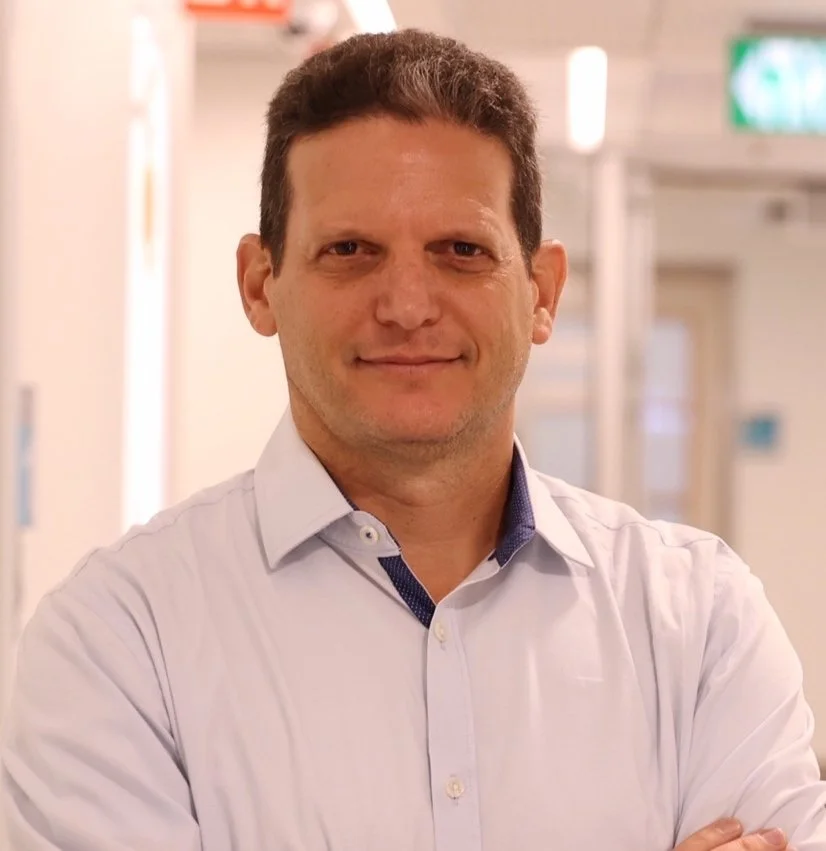The Cerebral Palsy Foundation invites you to join us for our 7th Annual Early Cerebral Palsy Health Summit!
HYBRID PROGRAM WITH IN-PERSON IMPLEMENTATION WORKSHOPS, IN-PERSON TRAINING COURSES, AND VIRTUAL E-COURSES!
The 2025 Health Summit will share new pathways for translating knowledge into practice for the Implementation of early detection and intervention of cerebral palsy from the best researchers and clinicians in the field.
New research published reflects that Diagnosis of cerebral palsy can now be made in babies less than one-year of age - marking a significant advance in the way high risk infants are diagnosed, families supported and outcomes improved.
With a HYBRID format, we are excited to offer a completely an in-person implementation workshop selection with limited selections of in-person HINE, HNNE, and GMA training at the Loudermilk Conference Center in Atlanta, GA, as well as a virtual program option.
HYBRID Format:
With an upgraded IN-PERSON Early Cerebral Palsy Health Summit Registration, attendees will get additional:
Live Keynote Lectures
Selection of Implementation Skill-Based Workshops
Limited selection of Training Opportunities for the Hammersmith Neonatal Neurological Examination (HNNE), Hammersmith Infant Neurological Examination (HINE) and General Movements Assessment (GMA). (Additional registration fees required for the GMA Training)
Networking Opportunities
Breakfast and Lunch meals will be provided on site
VIRTUAL Early Cerebral Palsy Health Summit includes:
Virtual versions of the same workshops led by World-Renowned Clinicians and Researchers
All virtual workshops will be available ON DEMAND for 3 months
Digital Poster Presentations
Health Summit Overall Objectives:
To disseminate best evidence on new developments in early detection and interventions for Cerebral Palsy. Including: applied and translational sciences, prevention, diagnosis, treatment, and technology.
Increase awareness and learn implementation strategies for new and emerging treatments for individuals with cerebral palsy and other developmental disabilities.
Identify new modalities for the diagnosis of cerebral palsy and developmental disabilities.
Increase interprofessional collaboration and developing clinic-based frameworks to help coordinate and improve services across the continuum of care for individuals with cerebral palsy and developmental disabilities across the lifespan.
Who should attend:
Pediatric providers who want to improve outcomes for high risk infants through early cerebral palsy diagnosis and intervention in a multidisciplinary setting including: Pediatricians, Family Practitioners, Neonatologists, Neurologists, OTs, PTs. Business Managers, Nurses, Nurse Practitioners, Researchers and Trainees.
Upon completion of the Health Summit, certificates will be available for CME and CEUs and Participation.
Schedule:
Wednesday - Friday, September 3-5 - In-person BASIC & ADVANCED GMA Training Courses ($950)
Friday, September 5 - In-person HINE and HNNE Training Courses (FREE*)
Friday, September 5 - In-person Nurse’s Training Courses ($100 WAIVED, FREE)
Saturday - Sunday, September 6-7 - Early Cerebral Palsy Health Summit -In-person workshops ($500)
Monday - Tuesday, September 8-9 - In-person Upper Limb Intervention Training Courses ($450)
Access to virtual e-courses only ($400)
*Available only to those registered for the Early Cerebral Palsy Health Summit
Conference Co-Chairs
Nathalie Maitre, MD, PhD - Director of Early Development & Cerebral Palsy Research, Emory University School of Medicine
Rachel Byrne - Executive Director, Cerebral Palsy Foundation









